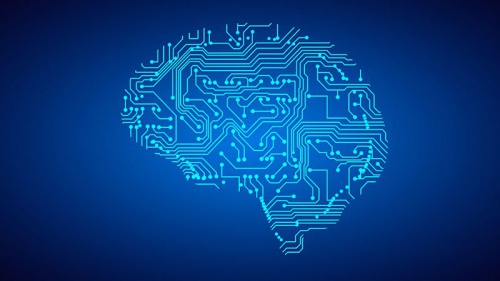Machine Learning part 2
(Redirected from Machine Learning)
“Machine Learning” is a scientific field concerned with the design and development of algorithms that allow computers to learn and response based on data from its databases. A computer can learn by itself based on examples (data) to capture certain things using sophisticated software based on probability distribution. Each time it makes mistake, it learns not to do it again so over a period of learning, it can response according to a pattern similar to human behavior.
The key factor of machine learning research is to develop software algorithms that automatically recognize complex patterns and make intelligent decisions based on past data. For example, a computer program is said to learn from experience E with respect to some class of tasks T and performance measure P. If its performance at tasks in T, as measured by P, improves with experience E.
Few months ago, the machine learning computer called Watson has memorize over 200 million pages of data to correctly give answers in the game “Jeopardy” and defeated the world’s best quiz game persons. This computer built by IBM has over 2,500 parallel processor cores, each can perform up to 33 billion operations in a second. It has several millions of software code and took more than five years to program at Carnegie Mellon and IBM facilities.
Few years ago, its previous version named “Big Blue” has learned every possible moves in Chess and defeated Garry Kasparov, the world’s Chess champion. Since then, “Big Blue” has defeated everybody who play Chess in matter of few seconds, as it can predicted all of your moves. Chess is a game of strategy and calculation so it is possible to write a software program for it. However, answering randomly selected questions is different challenge.
In this challenge, Watson will have to learn everything possible so it can answer questions that a common person can ask using the natural language such as English. For example: “Where is X street in New York?” or “What is the capital of Uganda”. It can answer ambiguous questions such as “What is the Rh factor” or “What book has a woman named Scarlett who married a person named Butler” (Answer: Gone with the Wind) or it can answer: “What city the Soccer player named Pelé was born?” People can even ask for lyrics from the Beatles’ songs to the notes of certain classical music symphony”.
Question Answering (QA) has been the dream of Artificial Intelligence (AI) field. It is considerably more difficult to develop algorithms than chess. It goes much farther and deeper than what search engines like Google do when it check its database for keywords. For example: Google will give you 300,000 page matches for a search of the terms “Greyhound” and “African country,” which you can then have to search them more to find what you need. But Watson can tell you in less than a seconds that the two word “Greyhound” and “African country” is related to a country named Egypt. (Greyhound is a type of dog original from Egypt).
When I.B.M. and the team of CMU researchers began their work in 2006, Watson could answer only 15 percent of the questions. It continue to learn from every books in the U.S congress libraries, read all books from libraries in Europe, all encyclopedias, dictionaries, thesauri, databases, taxonomies, the Bibles, movie scripts, novels and plays. Every time, it answers wrong, it memorizes and over time through reasoning deduction, it learns the correct answer. (This is what Artificial Intelligence is all about). To understand the questions, the machine has to learn and analyze natural language (the language that human use), appraise sources, propose hypotheses, check the database, collect several information, merge the results, and rank the best answers that has the highest statistical confident factor to find the most appropriate answer.
Of course, the correct answer is only a statistical thing, a matter of frequency and likelihood. Within few seconds the machine process countless possibilities based on over 100 algorithms converge on a solution than it can provide the answer. Could Watson answer every questions? Not yet. Human words are very difficult, some simple sentence may have several meanings and it will confuse the machine. But over time, the machine will learn and predict the correct one.
The issue is not whether the machine can learn like a human being or answer questions correctly. It will be done sooner or later but what can we do with an intelligent machine like Watson? What this technology will be used for? Is it possible that the machine will learn to distinguish right from wrong? Now that we are reaching another level in technology, we have created a machine that can learn and think. What will be next? Today IBM is working to commercialize this technology to the industry and business. In the near future, we will probably use it for many of our daily tasks just like what we use iPods, iPhone or iPads today.
Machine Learning and Language Technology are exciting fields within the Computer Science department at CMU, together with Robotics, they helped create Watson and open the door for the advancement of technology in this 21st century but what will be the next frontier? What will benefit our society most with this technology? These questions will be answered by our future students who continue to push the technology to the next level.
(One of my friend at CMU suggested that Watson could replace teachers in elementary school. Children are always curious and eager to learn, they ask all kind of questions that can make teachers tired. On the contrary, Watson is patient and never tired. It works seven days and twenty four hours without asking for a break. It also not ask for raise. Interesting idea!)
Sources
- Blogs of Prof. John Vu, Carnegie Mellon University
